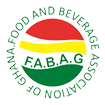- October 6, 2014
- Posted by: capello
- Category: News

Members of the Food and Beverage Association of Ghana (FABAG) say they fully support the implementation of the Ghana Conformity Assessment Programme (GCAP).
They, however, said the implementation of the initiative by the Ghana Standards Authority (GSA) would make imported products more costly, an increase that would be passed on to consumers.
“The issuance of inspection certificates by external inspection companies to importers will cost them 0.5 per cent of the invoice value, and since importers are not Father Christmas, they will surely revise the extra expenses incurred for engaging inspection firms,” they stated.
At a press conference in Accra last Friday, the Secretary of the F&BIAG, Mr Samuel Ato Aggrey, stated that “with the implementation of the GCAP, a product that cost $1 to ship to Ghana will now cost $1.4 for the same destination, and it is the consumer who will bear the cost against their income”.
GCAP
The GSA introduced the GCAP under which products shipped to the country would be inspected by the authority’s service providers in the exporting country.
Where products conform to the standards, a conformity certificate would be issued to an importer and a copy sent to the GSA in advance before the arrival of the consignment in Ghana.
Importers and exporters, however, kicked against the policy implementation, on the grounds that the authority failed to consult and educate them.
Costly GCAP
Mr Aggrey said last year, imported goods to Ghana stood at $18 billion and that if importers were to pay 0.5 per cent to the external inspection companies under the GCAP policy, “it will cost the country a whopping $19 million at the expense of the importers and exporters.”
Duplication of assessment
He stated that the members of the association were worried that even after the assessment of goods by an external inspection company, other regulatory bodies in the country engaged in individual assessments of consignment once they arrived in the country.
“When goods arrive in Ghana, agencies such as the Ghana Standards Authority (GSA), the Food and Drugs Authority (FDA), the Environmental Protection Agency (EPA), the Customs Division of the Ghana Revenue Authority (GRA) and the Driver and Vehicle Licensing Authority (DVLA) conduct their own assessment of the goods and impose tariffs.
“All these are bureaucracies that do not serve the interest of the country,” he said, adding that the duplication of such controls at the ports caused delays.
Increased tariffs
The secretary said recently the association had seen appreciable and unprecedented increments in all government tariffs, while agencies such as the FDA and the GSA had increased their tariffs by 100 per cent without the consent of stakeholders.
“We have always been marginalised in such matters of national importance.
“The FDA has just imposed a $200,000 pre-inspection fee for site or factory inspection audit for certain categories of products such as rice, fish, meat product and tomato,” he said.
Corruption and smuggling
A member of the F&BIAG, Mr John Awuni, said the implementation of the GCAP would cause the country to experience higher prices in goods, and that would trigger smuggling of goods into the country.
“Besides, it will also increase corruption among officials of the GSA who will accept bribe just to pass inferior goods, and we are simply calling on the GSA to enforce the law by moving to the market to confiscate fake goods,” he said.
